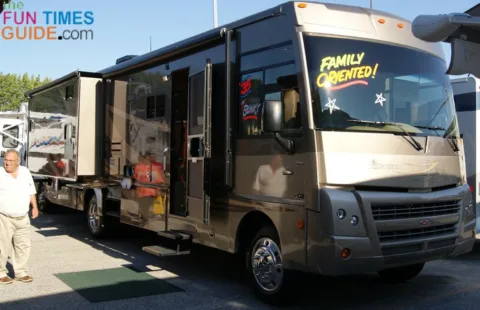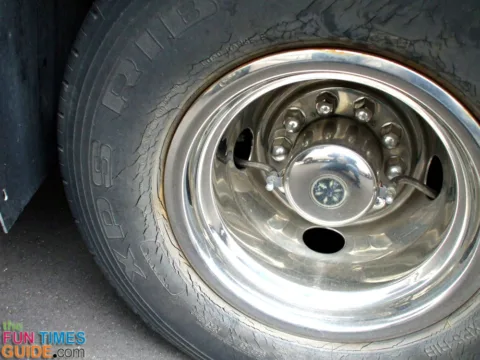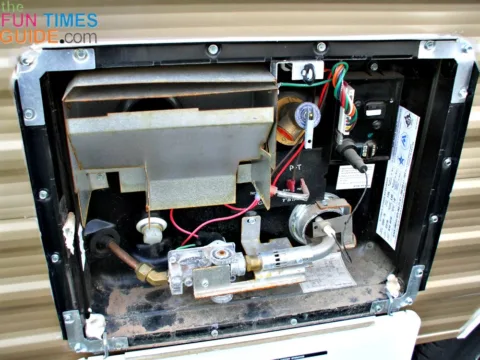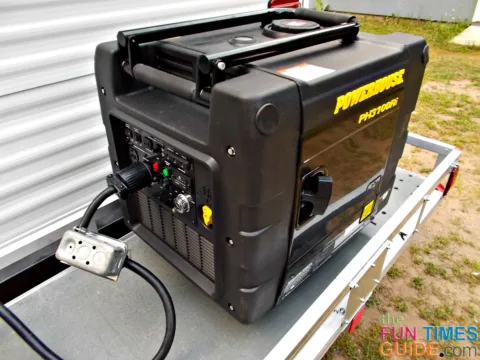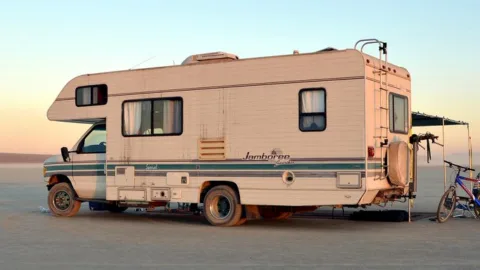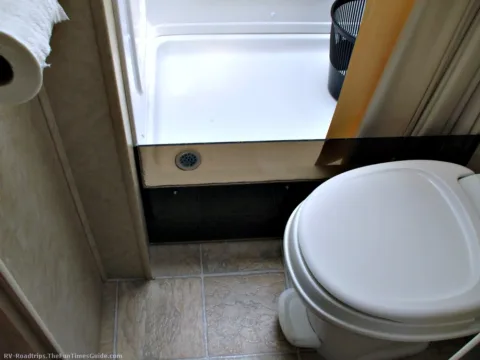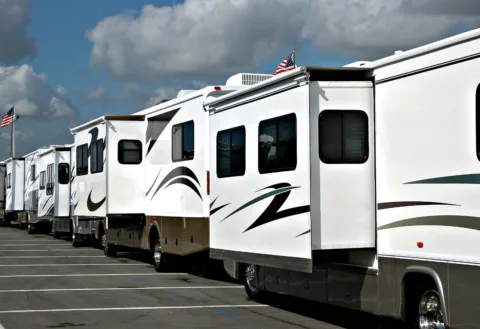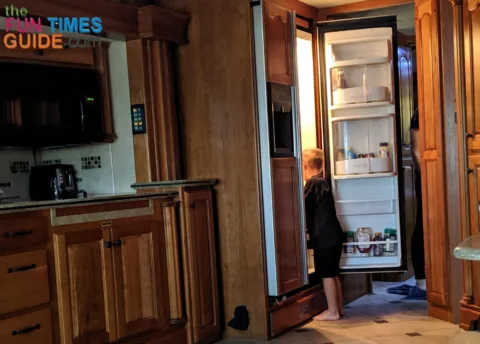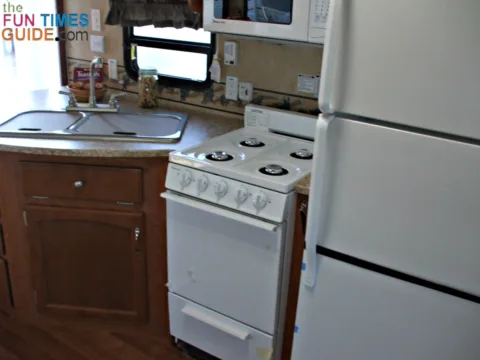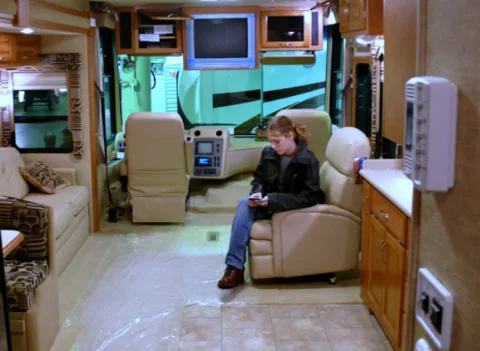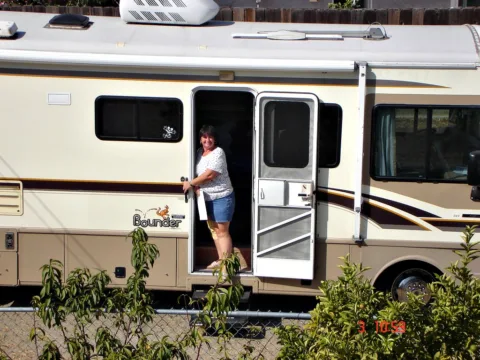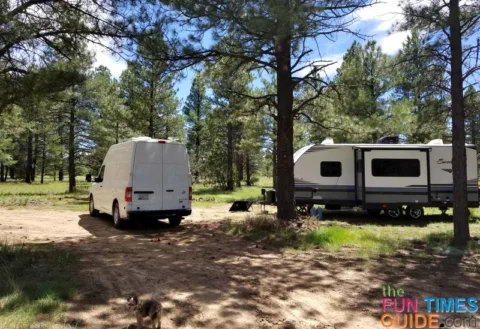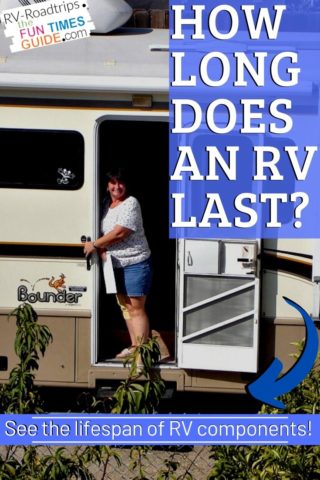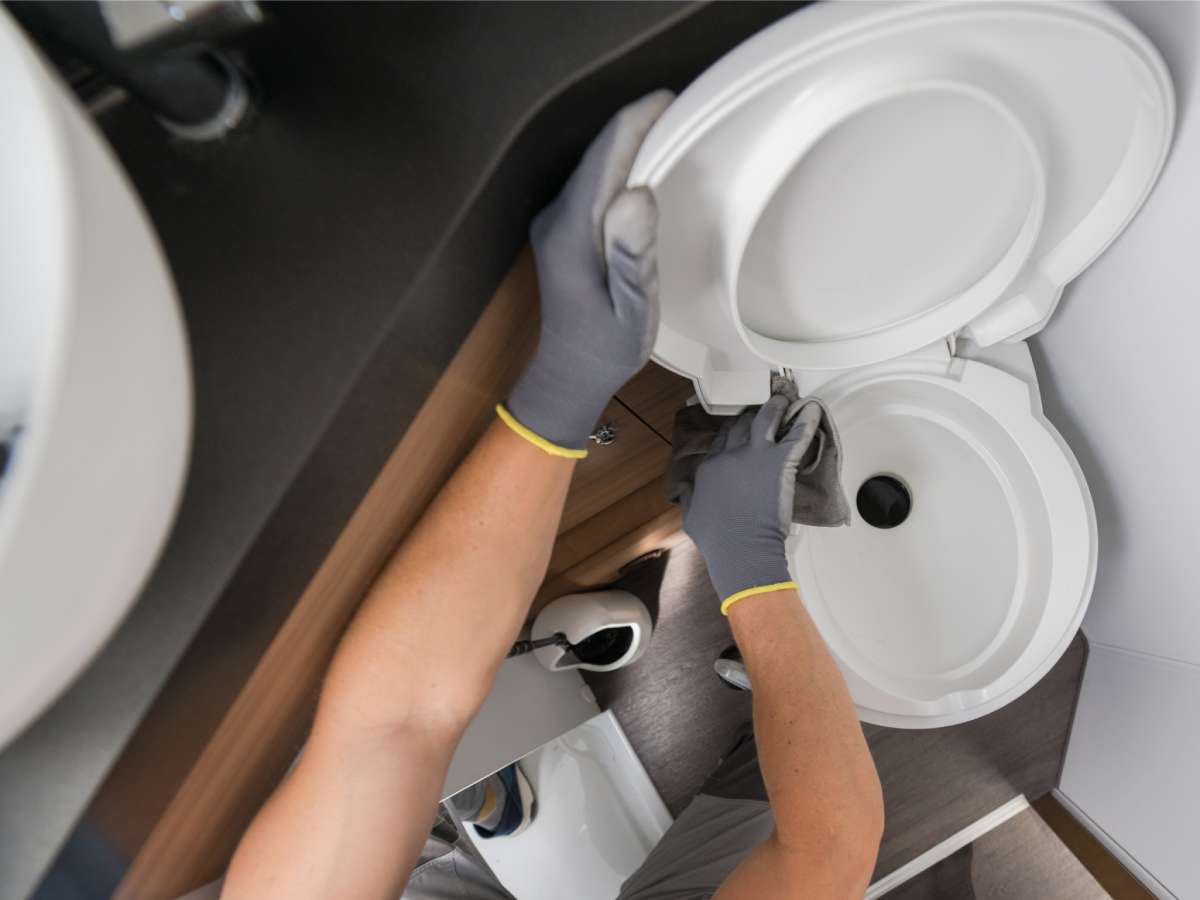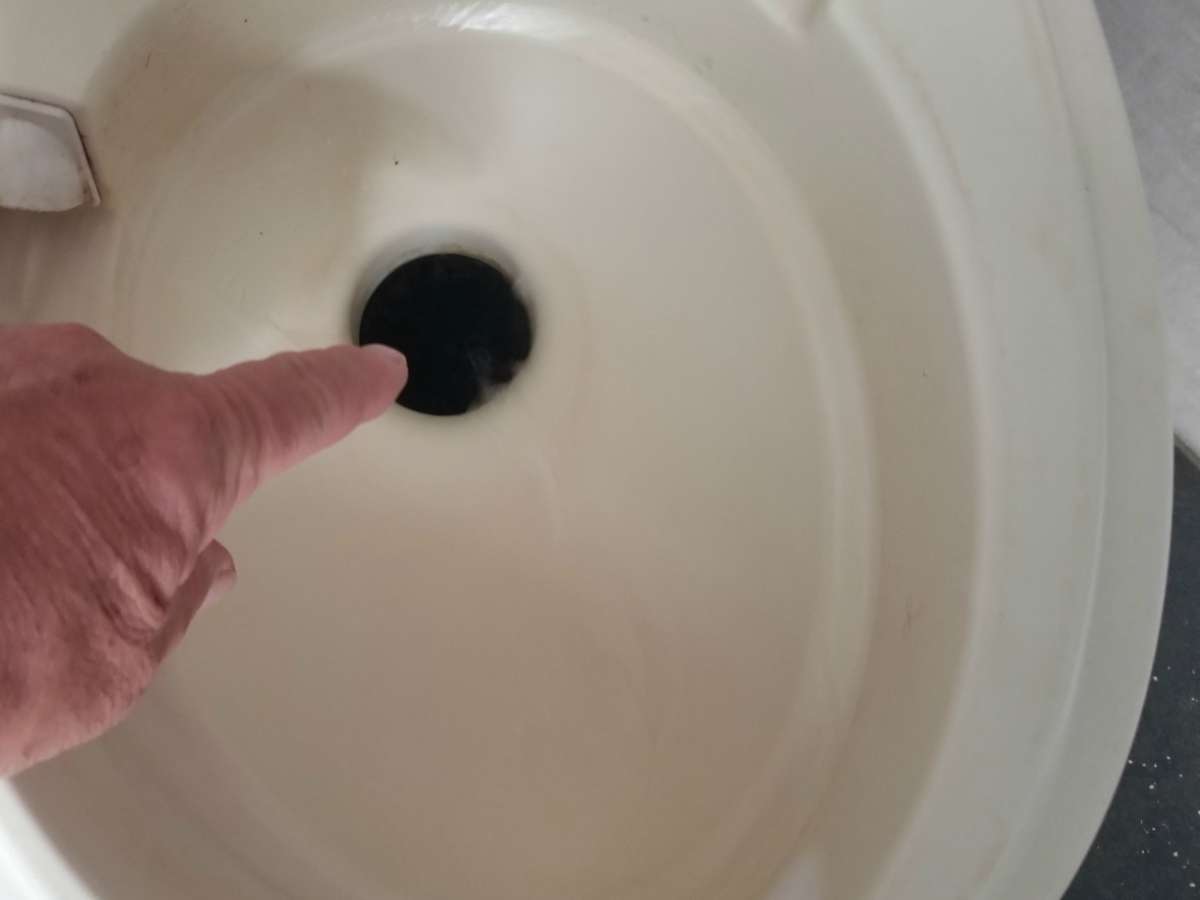Are you wondering how long RV components typically last?
Right off the showroom floor, the first thought many new RV owners have is, “How long will my new RV remain trouble free?”
If you’ve spent any time researching RVs on the Internet, then you may be thinking that you’ve just bought into a money pit with no bottom in sight!
However… if you happen to have some DIY abilities, then things won’t be quite as dismal as they may seem.
I’ve been involved with RVs for 50 years, and I’ve owned all types of RVs. I have seldom relied on dealership service departments for RV servicing or repairs.
I’m going to list for you what you should expect in the way of RV repairs, adjustments, and replacements over the life of your motorhome, travel trailer, or fifth wheel…
How Long Does An RV Last?
Are you wondering how long RVs themselves tend to last?
Well, it depends on a lot of factors — including how well you care for and maintain all of the working parts of the RV.
Generally speaking…
RVs will last between 10 to 20 years on average. This is according to data from used RVs online which are still functioning. After 10 years, the number of RVs that still function drop significantly. Source
However, if you take good care of your RV and inspect all of the RV components in it and on it routinely, then your RV could last even longer!
It’s not unheard of for a motorhome to last 200,000 to 300,000 miles — with regular maintenance.
RELATED: How Long Do RVs Last? (And Why Do Airstreams Last Longer Than Most?)
RV Components Most Likely To Fail
These are the types of RV repairs and maintenance issues you will want to be prepared for — a checklist, in order of the RV components that are most likely to fail first:
#1 – Interior Trim, Drawer Fronts & Bed Frames
You’ll start to notice things like interior trim falling off, drawer fronts looking crooked, and bed frames collapsing.
This is just a partial list of the smaller RV components that show their age first. But I’m sure you get the idea. I have personally had each of these items fail — and many more, as well.
RVs (other than the mega million dollar luxury coaches) are built with the lightest, cheapest materials in an assembly line manner that addresses speed over quality.
Be prepared to spend some time during your first year of RV ownership repairing, re-engineering, or reinforcing bits and pieces of the interior. You won’t catch everything at the pre-delivery RV inspection. And going back to the dealer for these incidentals will quickly waste away your first camping season.
RELATED: Tips For Remodeling Your RV Or Replacing RV Furniture
Don’t think this is only something that occurs in low-end RVs. I’ve seen the same issues in $350,000 motorhomes right from the factory!
#2 – Tires
Cheap Chinese tires are the norm as original equipment on most RV trailers. These are rolling time-bombs, and a blowout is only a matter of time.
In many cases, not only does the tire self-destruct without warning — it will likely do substantial damage to the wheel well and side of your trailer before you can pull over.
RELATED: RV Tire Problems You Need To Know About
During your first year of ownership, consider replacing trailer tires with tires that have a higher weight rating and higher road speed rating.
Most of all, install a quality, American name brand tire that stands behind their product.
My own trailer blew one of these tires early in the second year with less than 1,500 miles on it! I replaced all of my tires with Goodyear Endurance — that’s what the tire dealer recommended when I said that I wanted “bulletproof tires.”
#3 – Plumbing Parts
During the first year or so of RV ownership, plumbing leaks are a common problem.
For example, the plastic P-trap under my shower was improperly installed — and it leaked right off the bat! I replaced it with a quality metal version myself, but it was a bit of a chore to get at.
The same thing happened with my kitchen faucet. A bad plastic hose fitting was the problem there.
If you’re in an area with extreme hard water, you may develop problems with calcium buildup within plumbing fixtures. As a result, you will notice reduced water flow.
#4 – RV Generator
Onboard generators are a wonderful convenience — but they are not without their faults. A weak point in their longevity is that they need to be used regularly to be reliable.
Today’s poor-quality gasoline goes bad in a month or so — and a generator left with fuel in the carburetor will turn to lacquer quickly. Once the fuel goes bad, it plugs the jets in the carburetor — resulting in the generator running poorly or not starting at all.
Permanently mounted onboard generators live in a pretty poor environment. Hanging underneath the RV, they easily get clogged up with road dust and grime. A generator may become very unreliable within a year or two if it doesn’t get used often and lacks proper maintenance.
Their lifespan is ultimately determined by how well your generator is used and maintained. Similar to your lawnmower — if you take care of it, it will give many years of service.
The best advice is to install a manual fuel shut off, so you can run the generator out of gas during periods of non-use.
Diesel pusher motorhomes fare a little better because they usually have diesel generators. My 25-year-old diesel motorhome had a diesel generator that was quite reliable. Diesel fuel doesn’t go bad nearly as fast as gasoline. And since it was mounted at the very front of the coach, it was much less likely to be harmed by road grime and dust.
Portable generators also need to run regularly. Be sure to use a fuel shutoff to empty the carburetor after every outing. Otherwise, your portable generator can suffer the same problems as the permanently mounted models.
#5 – Water Pump
The RV water pump itself will last 10 years or more, depending on the quality of water. However, the working parts are another story.
I had to replace the pressure switch on mine after only 2 years — due to calcium buildup from the very poor water that’s common in the Southwest.
RELATED: How To Diagnose Water Pump Problems
#6 – RV Siding & Paint
Aluminum and fiberglass RV siding will last indefinitely. The nice shiny paint job… not so much!
Oxidation on both aluminum and fiberglass siding will take the luster away in a matter of 2 to 3 years.
Regular washing and waxing will slow the process — but the best way to maintain that “good as new” look is to store your RV inside. These are the RV cleaners and protectants I recommend to prolong the finish of your RV.
It’s the long exposure to the sun that takes the shine out of your RV’s finish. (The sun also makes fabrics and upholstery stiff and brittle and likely to fail.)
RELATED: What You Need To Know About RV Covers For Everything In And On Your RV
Fiberglass siding has also been the victim of delamination since it first came out in the early 1990s.
To avoid RV delamination problems, make sure that all windows are properly sealed — and check the roof seams for proper sealant. How long yours will last depends on how well your RV is maintained. Water is the root of all problems here — otherwise, the siding will last indefinitely.
#7 – Roof Vents and Covers
The roof vents and covers on top of your RV take a beating from the sun!
They will likely need replacement after 5 years — if left exposed to direct sunlight.
It’s best to install vent covers to protect and reinforce your RV’s vent covers where you can.
RELATED: How To Replace RV Rooftop Vents And Breathers
#8 – RV Batteries
Engine start batteries are one of the RV components that will last similar to that of your daily automobile — as long as they are kept charged.
Many motorhomes have battery disconnects which will remove all residual loads on the battery when not in use. If left connected, the battery will drain over time and it only takes 1 or 2 times before the longevity of your battery will be reduced to nothing. Having at least a battery maintainer solar panel will help to prevent this from happening.
RELATED: The Easiest Way To Check RV Batteries & Alternators
Coach batteries and trailer batteries also need to be disconnected when not in use — because things like LP leak detectors, smoke detectors, and carbon dioxide detectors will continue to drain the battery when stored.
Wet cell batteries need to be monitored for proper water level on at least a monthly schedule. If you ignore this simple task and the water exposes the lead plates, the battery is ruined and will never hold a proper charge again. With proper maintenance you can expect at least a good 5 years out of a standard wet cell lead acid battery.
If you upgrade to Lithium batteries, you can expect at least 10 years of use before they start to slowly degrade!
#9 – Trailer Brakes
Trailer brakes will wear over time — but their life expectancy is 100% dependent on your driving style and how well they are adjusted.
RELATED: What You Need To Know About Towing A Trailer
If adjusted to the point that they are doing all the stopping for your whole tow vehicle and your trailer combination — and if you drive aggressively — your brake shoes won’t last long!
I drive conservatively and have my brakes adjusted so that they never skid the tires, and they only apply helping stop power. The benefit is I have never replaced brake shoes.
#10 – RV Toilet & Plastic Plumbing Fixtures
Plastic plumbing fixtures and parts will age and get brittle over time. This happens even faster in the Southwest — where there are extreme temperatures and the sun is stronger.
These RV components should still last 10 years or more — but replacement to prevent failure is a better choice than repairing a part that’s got some years on it.
RELATED: How To Fix An RV Leaking Toilet
#11 – RV Slide-Outs
Your RV’s slideout mechanisms are likely to become a problem over time.
The most reliable types of RV slideouts are (in this order):
- Hydraulic with cylinders to extend and retract the slideouts.
- RV slide-outs that rely on electric motors and gears
- Slide-outs that rely on cables and pulleys
All RV slideouts require routine realignment and replacement of the seals — to ensure rain and weather does not get into the RV.
To some degree, the failure rate of RV slide-outs is a matter of how often they are cycled in and out. Generally, by the time they are 10 years old, they have started to become a maintenance issue.
RELATED: The RV Slide-Outs Guide (Including The Pros & Cons Of RV Slideouts)
#12 – Refrigerator
RV refrigerators are probably the biggest concern, because of their expense.
My own experience is that if you’re going have an issue with your RV refrigerator, it will most likely show up fairly early on — and it will probably be an easy fix that’s covered under the manufacturer’s 2-year warranty.
Mine had the igniter probe burn out — a $28 part. A close friend of mine had his circuit board fail — a warranty item on an $85 part.
RELATED: RV Refrigerator Repair 101 – How To Diagnose & Repair RV Refrigerators Yourself
The most expensive part of an RV refrigerator is the sealed cooling unit. This is what determines the life expectancy of the refrigerator.
You should be able to count on at least 10 years from your refrigerator, and with good luck as long as 20 years.
However, letting the RV sit for years at a time will shorten the life expectancy of your RV refrigerator — because the lining in the cooling unit will break down over time and plug up the coils. As with most things, it’s best to use an RV refrigerator regularly.
#13 – Water Heater
Most water heaters are reliable for around 10 years — assuming they get used somewhat regularly.
Gas valves and solenoids need to move to remain free and workable. Long periods of time in RV storage will cause things to get sticky.
Also, extremely hard water may cause premature failure of the tank itself. Having an anode rod installed in the drain port will help to prevent erosion inside the tank.
RELATED: DIY RV Water Heater Repair Advice
#14 – RV Furnace
RV furnaces are expected to be trouble-free for at least 10 years.
RELATED: Forced Air RV Furnaces vs. RV Catalytic Heaters
(Are you seeing a pattern here with the major RV components toward the bottom of this list?…)
Almost all propane appliances have the same characteristics — and as long as they are used occasionally, they will remain pretty reliable.
#15 – Stove/Oven
These are pretty reliable in RVs, lasting well over 10 years.
I use mine every day and it has always worked great.
Ovens generally are not all that accurate (in terms of temperature), but that’s something you get used to.
The only issue that I’ve ever had with an RV stove or oven is the screws that keep the burners on the stove tend to jiggle loose over time.
I consider the spark igniter a luxury that sometimes becomes unreliable — so I always keep a butane fire stick handy.
RELATED: The Best Camping Cooking Equipment For RVers
#16 – Electronic RV Components
TVs and other electronics tend to become out-of-date before they reach their failure time.
For example in the 1990s, analog TVs could no longer receive a signal. Likewise, VCRs were replaced by CDs and DVDs.
Other forms of RV electronics (such as converters, inverters, levelers, transfer switches, etc.) hold up equally well — however, once they fail, an exact replacement is unlikely.
There will be some modifying or retrofitting required to replace any of your RV electronics when their time has come.
RELATED: What You Need To Know About Your RV’s Electrical System
#17 – RV Drivetrain
This is something you may think will be trouble-free for the life of your RV, but it all depends.
There are a few notable differences between the drivetrain on diesel RVs versus gas RVs — which affects the life expectancy:
Diesel Motorhome Drivetrain
Diesel pusher RVs have heavy-duty truck components and likely will provide 350,000 to 500,000 miles of reliable use with very minimal attention.
Of course there is a caveat. Over the road trucks expect to accumulate that level of mileage within the first 5 years of life — and that would be an unusual accomplishment in an RV.
While it’s not hard to find a 20-year-old diesel coach with say 75,000 miles on it, keep in mind the basic engine and complete drivetrain are low mileage — but every piece of rubber is well beyond its life expectancy. Every rubber seal, dust boot, rubber belt or hose could fail unexpectedly at any moment.
Likewise, every single accessory attached to that engine is a failure point that has exceeded its normal life expectancy. Starters, alternators, air compressors, exhaust brakes, wheel seals, hydraulic leveling jacks, you name it — 20 years is past-due for failure.
Gas Motorhome Drivetrain
The majority of gas motorhomes have the equivalent of a 1-ton truck for the drivetrain.
When you compare the wind-resistance and overall size and weight of a large motorhome to say a standard 1-ton pickup truck… well there is no comparison.
From day one, most gas motorhomes are operating at the maximum capacity of their drivetrain. This will mean an overall shorter service life — usually by a significant amount.
If you make it to 100,000 miles without an expensive failure, you have done much better than most.
The longevity of your RV drivetrain will be determined by the level of maintenance given and your driving style. Slow and easy will get you there and save wear and tear.
#18 – Roof
The standard rubber roof material is usually guaranteed from the factory for 10 years.
With regular cleaning, and a good coat of rubber roof coating (after a few years), the life of your rubber roof should be at least 20 years or more.
RELATED: DIY RV Roof Repair Tips & Annual Roof Maintenance Tasks
Again, it’s all a matter of maintenance. Regular inspection to catch damaged or failing spots, and treating any issues promptly will greatly extend the life of your RV roof.
Bottom Line On The Lifespan Of RV Components
I wish I could tell you that your new RV will be trouble-free and reliable forever and ever.
I guess the best testimonial I can give is that for the amount of effort on my part to repair, adjust, or maintain my many RVs, I have never considered not owning one.
There is nothing like the wide open highway, enjoying beautiful vistas and sights through the big windshield of a motorhome, or finding that perfect getaway spot in a National Forest where there is no one around for miles.
RELATED: Your Annual RV Maintenance Checklist For Spring
RELATED: Your Annual RV Maintenance Checklist For Fall/Winter
In this video, I’m giving you a closer look at some of the most likely parts to fail in an RV — specifically, the RV refrigerator, deep cycle batteries, propane tanks, RV tires, RV slide-outs, RV awnings, RV roof, RV vent covers, RV solar panels, and RV air conditioner covers. See where, why, and when they are most likely fail:
Like this post? Save it to read again later… or share with others on Pinterest!

